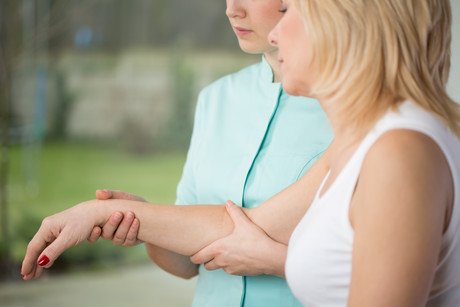Family-led rehab for stroke patients is ineffective

A large-scale trial undertaken by The George Institute for Global Health has found that at-home rehabilitation for stroke patients has little to no benefit.
Previous trials had indicated that family-led rehabilitation is effective but this research, published in The Lancet, found that there was little difference between patients who received no extra care and those whose family members had received training and support to deliver at-home rehab.
“We had expected to see a marked improvement in recovery of people who received this extra care delivered by their own trained family members, in their own homes,” said Professor Richard Lindley of the University of Sydney. “Other trials have indicated that community-based rehabilitation can play a significant role in recovery but these have been conducted largely in high resource settings.”
The trial observed 1250 stroke patients from across India for six months. The average age of Indian stroke patients is 15 years younger than in high-income countries.
“We found that despite extensive training in hospital and during follow-up visits in the home, there was no difference in the degree of recovery or quality of life of people who received this extra treatment. We are confident that the training sessions were completed correctly, and patients and carers accepted the training,” said Professor Lindley.
Community rehabilitation, also known as task shifting, has been highlighted as a priority for improving limited healthcare access in low- to middle-income countries by the World Health Organisation.
“Task shifting is increasingly seen as a solution to targeting chronic diseases in many countries in the world,” said study co-chair Professor GV Murthy, of the Indian Institute of Public Health. “But our results show it may be ineffective for some conditions and waste already limited resources.”
Professor Lindley agreed: “Our results suggest that effective rehabilitation may need to be provided by professionals who have undergone years of training and are specialists in their own field, which may impose major challenges to poor communities with limited financial resources.”
An estimated 1.6 million Indians suffer from stroke annually but there are currently only 35 stroke units across the whole country.
Professor Lindley added: “In response to the rising rates of stroke there needs to be much greater investment in facilities for people affected by stroke, and measures to protect them from the potentially prohibitive costs of treatment.”
This international study was led by the George Institute for Global Health in collaboration with the Universities of New South Wales, Sydney, Nottingham, Glasgow and Leeds. Funding was provided by the National Health and Medical Research Council of Australia.
Specially designed peptides can treat complex diseases
Two separate research teams have found ways to create short chains of amino acids, termed...
Exposure to aircraft noise linked to poor heart function
People who live close to airports could be at greater risk of poor heart function, increasing the...
Predicting the impact of protein mutations with simple maths
Researchers have discovered that the impact of mutations on protein stability is more predictable...



